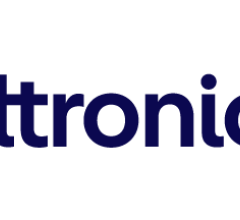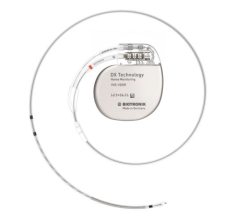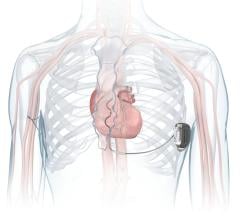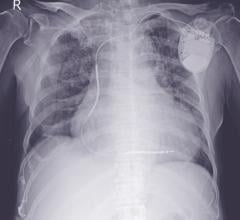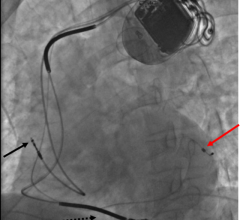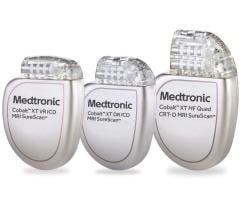May 21, 2008 — The number of follow-up visits for patients with a cardiovascular implantable electronic device (CIED) exceeds 5.8 million visits each year, and that number will continue to increase as more CIEDs are implanted.
To ensure that these life-saving devices are managed properly and patients receive the best possible care, the Heart Rhythm Society and the European Heart Rhythm Association have prepared HRS/EHRA Expert Consensus on the Monitoring of Cardiovascular Implantable Electronic Devices (CIED): Description of Techniques, Indications, Personnel, Frequency and Ethical Considerations. The consensus statement was released today at Heart Rhythm 2008, the Heart Rhythm Society’s 29th Annual Scientific Sessions.
Nearly one million patients in North America and more than 800,000 in Europe have a CIED, such as a pacemaker, implantable cardioverter defibrillator (ICD) or cardiac resynchronization therapy (CRT) device. These devices provide ongoing therapy for patients, but throughout the patient’s lifespan that therapy requires monitoring and adjustments. The new consensus statement is the first to offer guidance on the management of CIEDs from the time of implantation until explantation or the patient’s death.
“As the indications for implantation broaden and the frequency of device utilization increases, the management of these patients and their devices has become a complex medical service,” said Bruce L. Wilkoff, MD, FHRS, chair of the Heart Rhythm Society’s Health Policy Committee and Director of Cardiac Pacing and Tachyarrhythmia Devices at the Cleveland Clinic Foundation. “Until now, there has been little guidance for practicing physicians, hospitals, regulatory agencies and insurance agencies to provide the medically appropriate level of care for patients.”
The Heart Rhythm Society and the European Heart Rhythm Association brought together an international panel of experts in order to comprehensively address all issues related to device management and follow-up. The international panel agreed that device monitoring should be handled by professionals specially trained in the field, and also issued a call-to-action for the device industry, health care institutions and physician practices to provide the necessary infrastructure that will ensure patient care is safe and effective. Experts also addressed how the Internet and wireless technology are changing patient data management and data sharing.
The new consensus statement offers guidance on a range of issues including:
* Factors that determine the type and frequency of device follow-up
* Content requirements for both in person and remote monitoring
* Data management considerations including patient confidentiality and data security
* Remote management strategies
* Considerations for the development of a global device registry
* Roles and responsibilities for physicians, allied professionals, manufacturers and regulatory agencies
* Patient education and responsibilities
* Ethical considerations, including CIED management in dying patients
* Reimbursement issues
“With the goal of increasing the length and quality of the patient’s life, appropriate monitoring of device therapy can enhance the likelihood that the patient can pursue their life with fewer interruptions by hospital admissions and operative interventions,” said Panos Vardas, MD, Ph.D., from Heraklion University Hospital in Heraklion-Crete, Greece. “Guidance provided by this consensus statement sets an international benchmark for device management practices and will help physicians provide better, safer and more consistent care for CIED patients worldwide.”
The complete guidelines will be published in the June issues of the HeartRhythm Journal, the official journal of the Heart Rhythm Society, and Europace.
For more information: www.hrsonline.org


 January 13, 2026
January 13, 2026 

